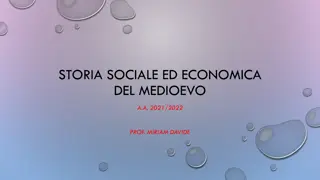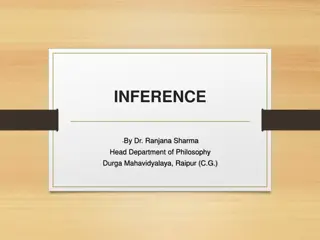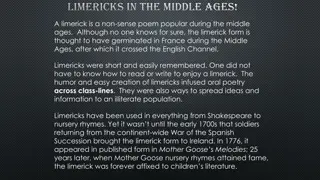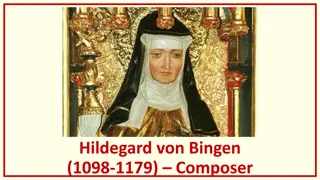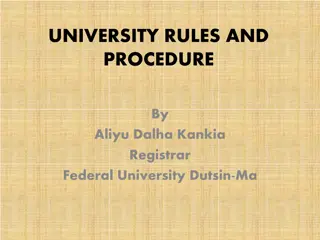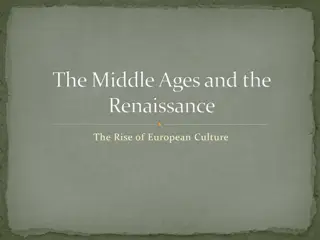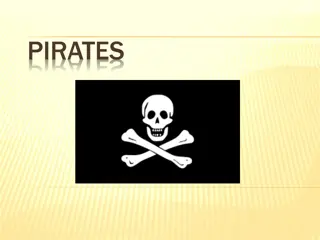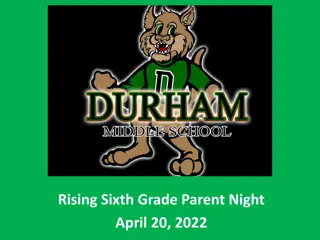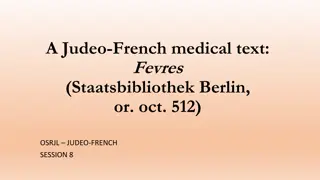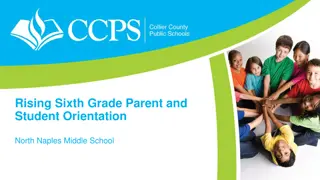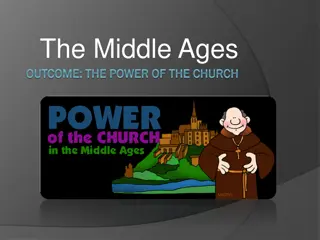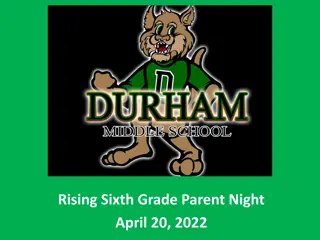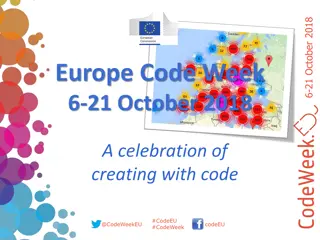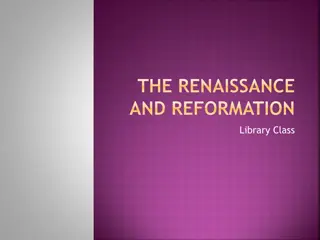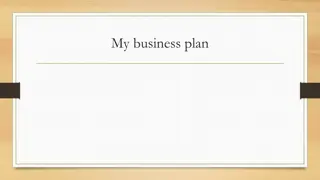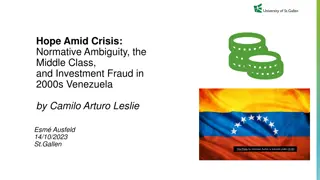Life in the Middle Ages of Europe
Explore the fascinating world of the Middle Ages in Europe through the eyes of Mrs. Sanders' 6th-grade class. Delve into topics such as becoming a knight, castles, clothing, knights and their armor, weapons, medieval monks, the Knights of the Round Table, jousts and tournaments, cathedrals, and the Crusades. Learn about the rigorous training and rituals involved in knighthood, the strategic design of castles, the simple yet practical clothing of the era, and the intricate craftsmanship of knights' armor. Dive into this educational journey to witness the rich history of the Middle Ages come to life.
Download Presentation

Please find below an Image/Link to download the presentation.
The content on the website is provided AS IS for your information and personal use only. It may not be sold, licensed, or shared on other websites without obtaining consent from the author. Download presentation by click this link. If you encounter any issues during the download, it is possible that the publisher has removed the file from their server.
E N D
Presentation Transcript
Middle Ages of Europe Middle Ages of Europe By: Mrs. Sanders 6thGrade Class
Becoming a Knight Castles Clothing Knights & their Armor Weapons Medieval Monks Knights of the Round Table Jousts & Tournaments Cathedrals The Monks & Nuns Crusades
BECOMING A KNIGHT BECOMING A KNIGHT KIMBERLY & BREANA A boy starts on his way to knighthood at about the age of seven or eight. This young trainee was known as a page. Pages practiced fighting with a sword against a wooden stak or pell to develop muscles needed in becoming a strong knight.
Becoming A Knight Jesse and Stephen You have to be the between the ages eighteen and twenty. The next morning you would be dressed in symbolically colored clothes red (for his blood), white (for purity), & brown (for the return to earth when he died). A tap on each shoulder would crown him a knight.
Castles Kara and Haley The structures were surrounded by a moat, a ditch filled with water. The gatehouse was the living quarters of the guards over the main gate of the castle. The portcullis was a heavy gate made of wood and iron, which could be dropped down to close off the gatehouse.
Castles Matthew B. and Branden The walls of a castle could be as thick as 30ft!!! The walls of a castle have small slits in them called arrow loops for men to shoot arrows through. Round walls made each part of the castle harder to hit, and they gradually get thicker.
Clothing of the Middle Ages Josie and Andrea Most women and men wore tunics. Children only wore rags mostly from the adults old clothes and never had shoes to wear. Monks and old men wore tunics to the ground.
Knights and their Armor Jon-Jon and William The suits took 5 years to make. The armor was hand- made by artisans and craftsmen. It took an hour to put on the suit of armor.
Knights and their Armor Niky and Kristi In the 12th century, the knights used an armor called mail. When the armor was complete it weighted about 20 or 30 pounds and that was only the chest, arms, and back. These suits lasted until the 15th century and then they started making full body suits our of plate armor.
Weapons Weapons Bri ttany, Sam antha, and Shuntel l e Bri ttany, Sam antha, and Shuntel l e The two-handed sword was a very large sword with visions of the ordinary sword. The battle-axes were on a yard handle, and swung with both hands. The cross bows were like a gun that shot
Weapons Randy Warriors used all kinds of weapons. The smallest weapon was a dagger. Knights used lances during jousting tournaments. A double-handed sword was used in the 13th century.
Medieval Monks Cory and Jared Monks were men who devoted their lives to the service of God. The chapel house is were monks go to speak to pardons. They did not talk at dinner;instead they made signals to each other for talking.
Monks and Nuns Britt and Matthew J. Some monks wore shirts made of hair as undershirts,to purposely scratch their skin and constantly remind them of the suffering that Jesus had done. There is a special type of haircut required of monks in some churches. It is called Tonsure,and it leaves a ring of hair around the head to represent the crown of thorns that Jesus wore.
Jousts & Tournaments Jousts & Tournaments By: Jordan & Katrena By: Jordan & Katrena Jousting reached its height as a spectator sport in the 13th century. Knights met at a combined speed of 60 mph. 2 teams of knights would fight a mock battle, called a tourney.
Jousts and Tournaments Lucas and Austin In a joust, knights could show off their skills without other contestants getting in the way. A knight could score points if he broke his opponent s lance on your shield. Special armor was developed for jousting to increase protection.
Cathedrals Cathedrals ~In the middle ages,the main purpose for a cathedral was religion. ~The bells in the tower often signaled beginnings of services or served as a clock to tell time. ~Stained glass windows, statues, and paintings were picture Bibles for those who couldn t read.
The Crusades Kendall, Darren, and Christopher During the Middle Ages, many Christians went as pilgrims to Jerusalem and other Bible lands. By November 1095 Pope Urban II preached a sermon calling on faithful Christians to journey to the Holy Land on a crusade against the Turks. The Turks were driven from much of the Holy Land and a new kingdom of Jerusalem known as Outremer, was set up.
Monks and Nuns Stephanie and Madison Monks lived alone, but met in a common chapel. Monks went to monastery churches eight times a day. The life of a monk or nun was full of prayer, physical work, and prayer.
Knights of the Round Table Jessie B. and Ashley B. The Knights of the Round Table were the most famous knights ever. King Arthur s charge to the knights was meant to make them promise to always to do good and never do evil. Their bravery, honor, and dignity should be an example for all of us to behave even in today s times.
Thank you! Thank you to all the students for helping me create this presentation. Some taught me a lot about making a Power Point, and in turn I taught others how to use PowerPoint.--- Mrs. Sanders
This powerpoint was kindly donated to www.worldofteaching.com http://www.worldofteaching.com is home to over a thousand powerpoints submitted by teachers. This is a completely free site and requires no registration. Please visit and I hope it will help in your teaching.
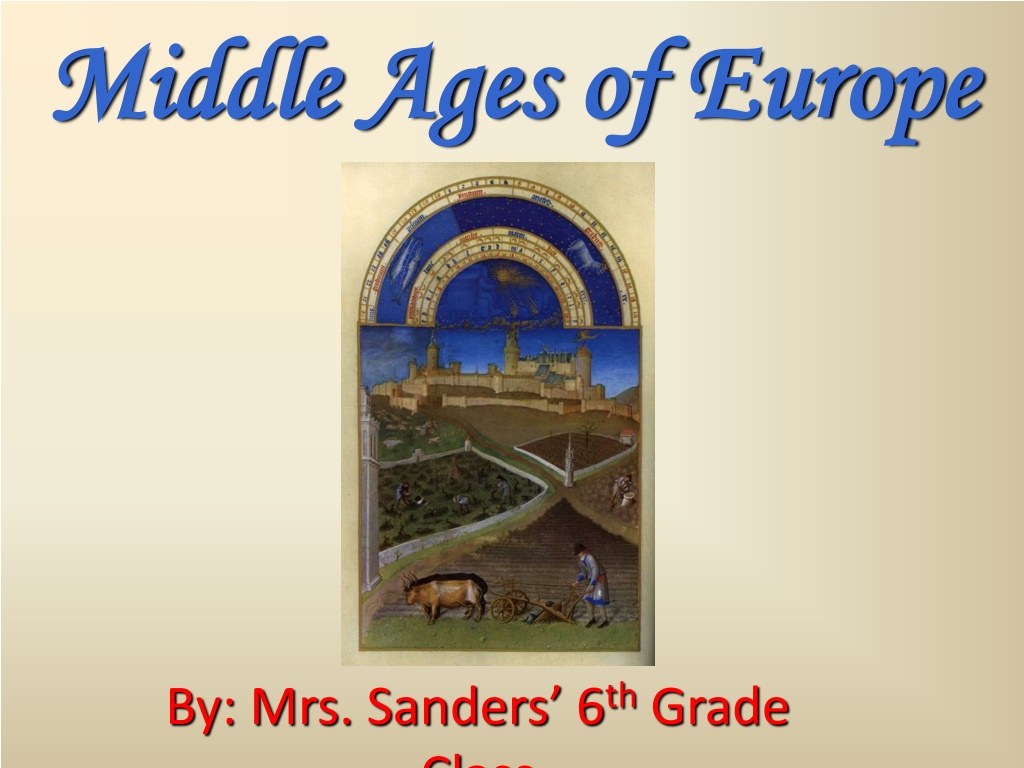

![READ⚡[PDF]✔ European Mail Armour: Ringed Battle Shirts from the Iron Age, Roman](/thumb/20552/read-pdf-european-mail-armour-ringed-battle-shirts-from-the-iron-age-roman.jpg)
